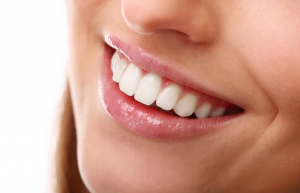Dental care is an essential part of maintaining overall health, yet many people still hold onto myths and misconceptions about dental hygiene and treatments. These dental myths can lead to improper oral care practices and even deter individuals from seeking necessary dental treatment. If you’re looking for a Caring Dentist In Pflugerville, look no further than our practice. In this article, we will separate fact from fiction and debunk the top dental myths that continue to circulate.
Myth #1: Brushing Harder Will Clean Teeth Better
It is a common misconception that brushing teeth harder will clean them better. In reality, brushing too hard can damage teeth and gums, leading to gum recession, tooth sensitivity, and enamel erosion. It is recommended to brush teeth gently for at least two minutes, twice a day, using a soft-bristled toothbrush and fluoride toothpaste.
Myth #2: Flossing Is Unnecessary
Flossing is an important part of oral hygiene, yet many people believe that it is unnecessary. Flossing removes food particles and plaque from between teeth and along the gum line, preventing tooth decay and gum disease. Dentists recommend flossing at least once a day, along with brushing, to maintain optimal oral health.
Myth #3: White Teeth Are Always Healthy Teeth
Having white teeth does not necessarily mean that they are healthy. Teeth can appear white due to whitening treatments or natural enamel color, but underlying dental problems may still exist. Regular dental check-ups and cleanings can help identify and treat any dental issues.
Myth #4: Sugar Is the Only Cause of Tooth Decay
While sugar is a primary contributor to tooth decay, it is not the only cause. Acidic foods and drinks, such as citrus fruits and soda, can also erode tooth enamel and lead to decay. Proper dental care, including regular brushing and flossing, can help prevent tooth decay.
Myth #5: Dental Procedures Are Always Painful
Many people fear dental procedures because they believe they are always painful. However, with modern dental technology and anesthesia, most dental procedures are relatively painless. Dentists use local anesthesia to numb the area being treated and can offer sedation options for individuals with anxiety.
Myth #6: Gum Disease Only Affects the Mouth
Gum disease, also known as periodontal disease, can affect more than just the mouth. Research has linked gum disease to various health issues, such as heart disease, diabetes, and stroke. Maintaining proper oral hygiene can help prevent gum disease and improve overall health.
Myth #7: Baby Teeth Are Not Important
Many people believe that baby teeth are not important because they eventually fall out. However, baby teeth play a crucial role in the development of adult teeth. They help children speak and chew properly, hold space for adult teeth, and guide adult teeth into their correct position. It is important to care for baby teeth, and regular dental check-ups can ensure their proper development.
Myth #8: Teeth Whitening Damages Enamel
Teeth whitening treatments, when performed by a dental professional, do not damage enamel. The whitening process uses a safe concentration of hydrogen peroxide to remove surface stains and discoloration, without harming tooth structure. However, overuse of at-home whitening kits can lead to enamel damage and tooth sensitivity.
Myth #9: Brushing After Every Meal Is Necessary
While it is important to brush teeth twice a day, brushing after every meal is not necessary. Brushing too often can damage enamel and irritate gums. Instead, it is recommended to rinse with water or chew sugar-free gum after eating to help remove food particles and stimulate saliva production.
Myth #10: You Should Avoid Dental Treatment During Pregnancy
Proper dental care is essential during pregnancy, as hormonal changes can increase the risk of gum disease and tooth decay. Routine dental check-ups and cleanings are safe during pregnancy and can help prevent dental problems. However, certain elective procedures, such as teeth whitening and non-emergency surgeries, should be postponed until after delivery.
Conclusion
It is important to separate fact from fiction when it comes to dental care. By understanding and debunking these common dental myths, individuals can make informed decisions about their oral health and seek proper dental care. Remember to brush gently, floss daily, and maintain regular dental check-ups for optimal oral health.








